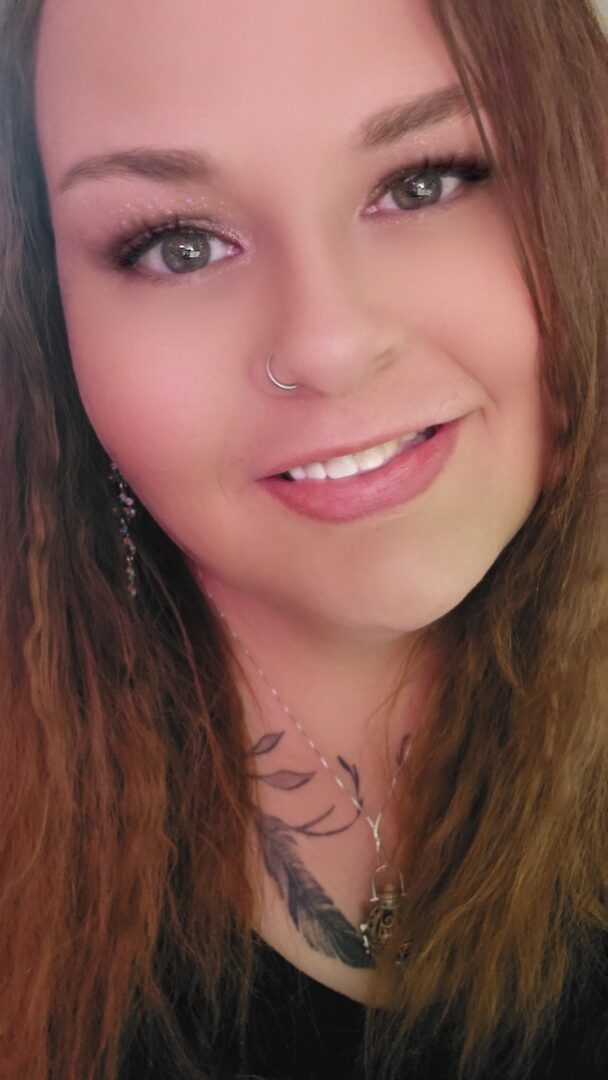We’re excited to introduce you to the always interesting and insightful Belinda (Belle) Morey. We hope you’ll enjoy our conversation with Belinda (Belle) below.
Hi Belinda (Belle), appreciate you sitting with us today to share your wisdom with our readers. So, let’s start with resilience – where do you get your resilience from?
Where do I get my resilience from? Honestly, I think I was forced to find it the hard way.
There’s one moment that stands out — a real before-and-after line in my life. I woke up in a hospital in Wausau, Wisconsin, with tubes in me, tied to a bed, not fully sure if I was dead or alive. I’d been airlifted there after intentionally driving my car off the road, after drinking too much Bacardi and taking Xanax bars. Heartbreak, addiction, and pain had all piled on top of each other. I don’t remember the crash. I don’t remember much about how I even got out of that situation without charges, or why nobody from social work was called. But I do remember waking up completely alone. No one to take me home, no clothes, no plan. My brother and sister-in-law eventually came to get me, dropped me off at a house that felt emptier than I’d ever felt inside.
That’s the moment I never want to go back to. That’s the moment I realized: if I want something better, I’m going to have to fight for it, even if I’m doing it alone.
My experience with addiction, recovery, and surviving abuse fundamentally changed how I look at failure and setbacks. To me, failing isn’t the end; it just means I didn’t get the outcome I wanted this time. Every misstep is a lesson, an opportunity to try again differently. Even when I was in a violent, abusive relationship, I didn’t stop fighting for myself, even if my ways of fighting were messy or unhealthy. What matters is that I kept moving, kept learning. I don’t see failure as something to be ashamed of anymore — it’s just a sign that I’m still in the ring.
My mom used to call me ‘the queen of comebacks,’ but I don’t think I understood what she meant until my mid-30s. By then, I’d started to actually build something that looked like a life — a stable home, a healthy relationship, kids who were thriving, and for the first time, I felt empowered. When I finally left my ex-husband for good, stepped out of that dangerous relationship, and started over, it hit me: if I could survive all that and still love, still forgive, still want to build something new, then honestly, I could do anything. That’s what being the queen of comebacks is all about. It’s not about never falling down — it’s about always getting back up, stronger and smarter than before.
I didn’t get here alone, though. My support system is everything. These are people who know me inside and out, who aren’t afraid to call me out when something’s off, who keep me honest. I had to work hard to build that trust, to earn my way back into those relationships, but it’s been worth every uncomfortable conversation. And I’ve learned to be flexible — to wing it, to roll with the punches, to not freak out when plans change. That’s saved me more than once.
Working as a substance abuse counselor now, I use my resilience every day. There’s a special kind of understanding that comes from having lived through it yourself. Early in my recovery, I just wanted to talk to someone who really ‘got it.’ Now, I try to be that person for others. It’s not about making my story the center — it’s about using what I’ve learned, sharing it when it helps, and holding space for someone else’s comeback.
If I could leave one message, it’s this: progress is progress, whether it’s a mile or a millimeter. You don’t have to do it all at once, and you definitely don’t have to be perfect. All that matters is that you keep moving, even if it’s barely noticeable some days. You are not your relationship status, your last name, your bank account, or your mistakes. You’re still here, and that’s amazing — celebrate it. Just keep coming back.
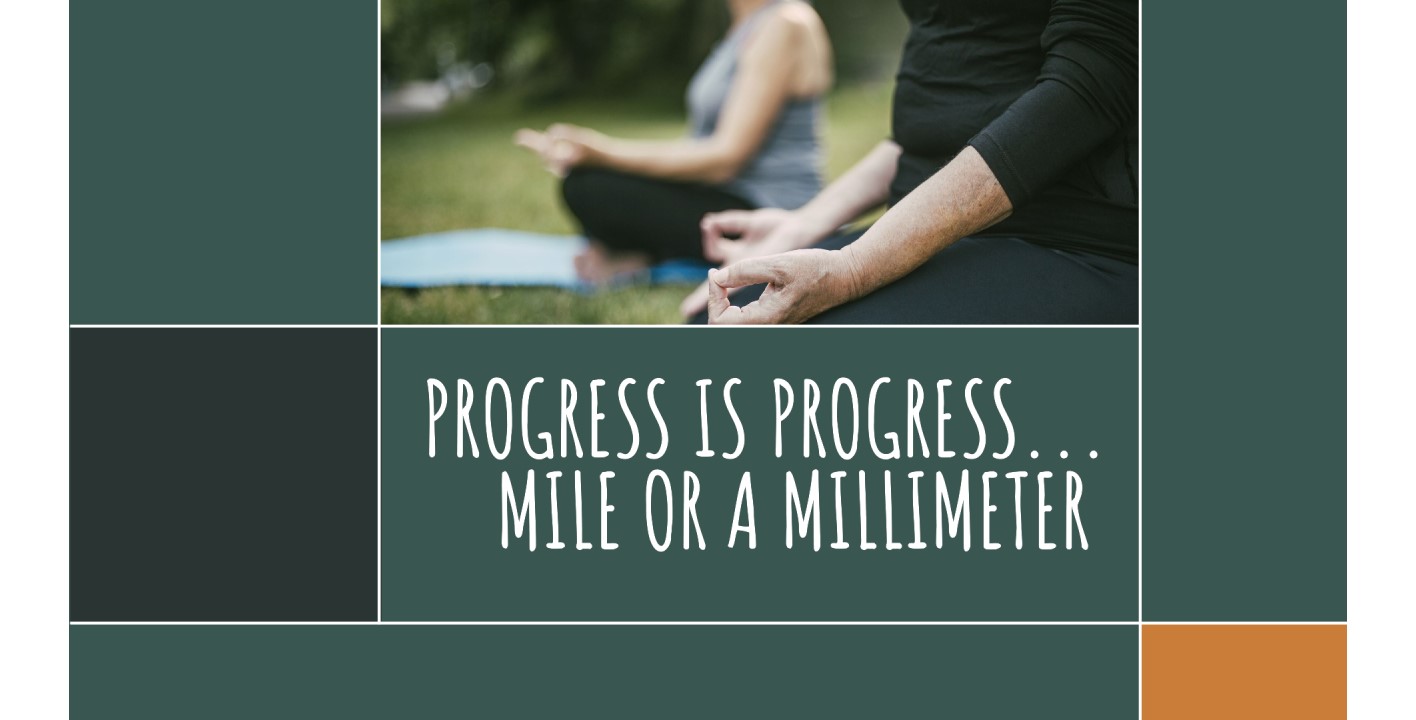
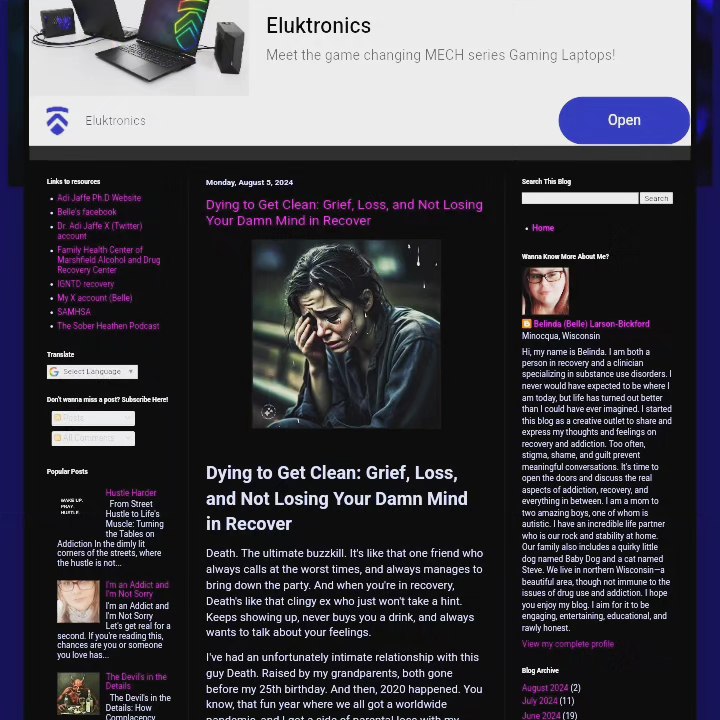
Great, so let’s take a few minutes and cover your story. What should folks know about you and what you do?
Right now, my professional world is a mix of counseling, coaching, writing, and building community. I work full-time as an outpatient substance abuse counselor at Family Health Center of Marshfield in Wisconsin. We serve folks in Marshfield, Managua, Ladysmith, and soon, we’ll have new locations opening in Rhinelander and Wisconsin Rapids. We offer everything from outpatient counseling to medication-assisted treatment, and recently, our program became dual-diagnosis certified, which means we can support people dealing with both substance abuse and mental health challenges. That’s something I’m really proud to be part of — it’s such a needed resource.
I’m also about to launch a new podcast for our organization, focused on mental health and recovery. It’s a chance to talk honestly about what people are going through and spotlight the real stories behind recovery — the stuff that doesn’t make the highlight reels, but absolutely matters. I can’t wait to see where that goes.
Outside of my “day job,” I work as an accountability coach and group facilitator with an online recovery platform called IGNITD (spelled I-G-N-T-D). It’s a totally new way to reach people — digital, accessible, and community-driven. I’ve loved being part of IGNITD’s growth this past year, and I’m excited to help shape a movement that’s making recovery support more open and flexible for people everywhere. Plus, I get to work alongside Dr. Adi Jaffe, who’s a leader in the field and someone I really admire.
I specialize in working with people who are dealing with substance use disorder, but also codependency, self-esteem, self-doubt, self-love, and — of course — resilience. I’ve worked with all kinds of clients: different ages, backgrounds, and cultures. I especially value the chance to support Native American communities in my area, and to work with transgender individuals who don’t always see themselves represented in recovery spaces.
My path into this field started with my own recovery. I’d worked as an EMT and thought I’d stay in the medical field, but life had other plans. I actually switched to substance use counseling because I thought I could “fix” my husband at the time. That didn’t happen — and it was a hard, humbling lesson — but what I did get was the chance to fix myself. I found out I’m actually really good at this work. My past life, I was a hustler — I talked for a living, manipulated in unhealthy ways. Now, I talk for a living, but in a way that helps people heal. It’s a wild, full-circle thing.
My philosophy is simple: progress is progress, whether it’s a mile or a millimeter. I say it to my clients, I write about it on my own blog (also called “Progress is Progress, Mile or a Millimeter” on Blogspot), and I try to live it every day. I want people to know that change doesn’t have to be dramatic to be meaningful — tiny steps count.
I’m also an editorial advisory board member for the Vital Voyage blog, where I get to collaborate and co-author articles with other professionals I’ve met (shoutout to LinkedIn for that connection!). It’s another way I get to contribute to the conversation around recovery and mental health.
What excites me most is seeing people realize they’re not broken or hopeless — that they’re capable of change, even if it’s slow. I love being part of their journey, and I love being proof that you can come back from just about anything.
If there’s one thing I want people to know about my work and my brand, it’s that recovery isn’t about perfection or speed. It’s about progress — and every single bit of forward movement matters.
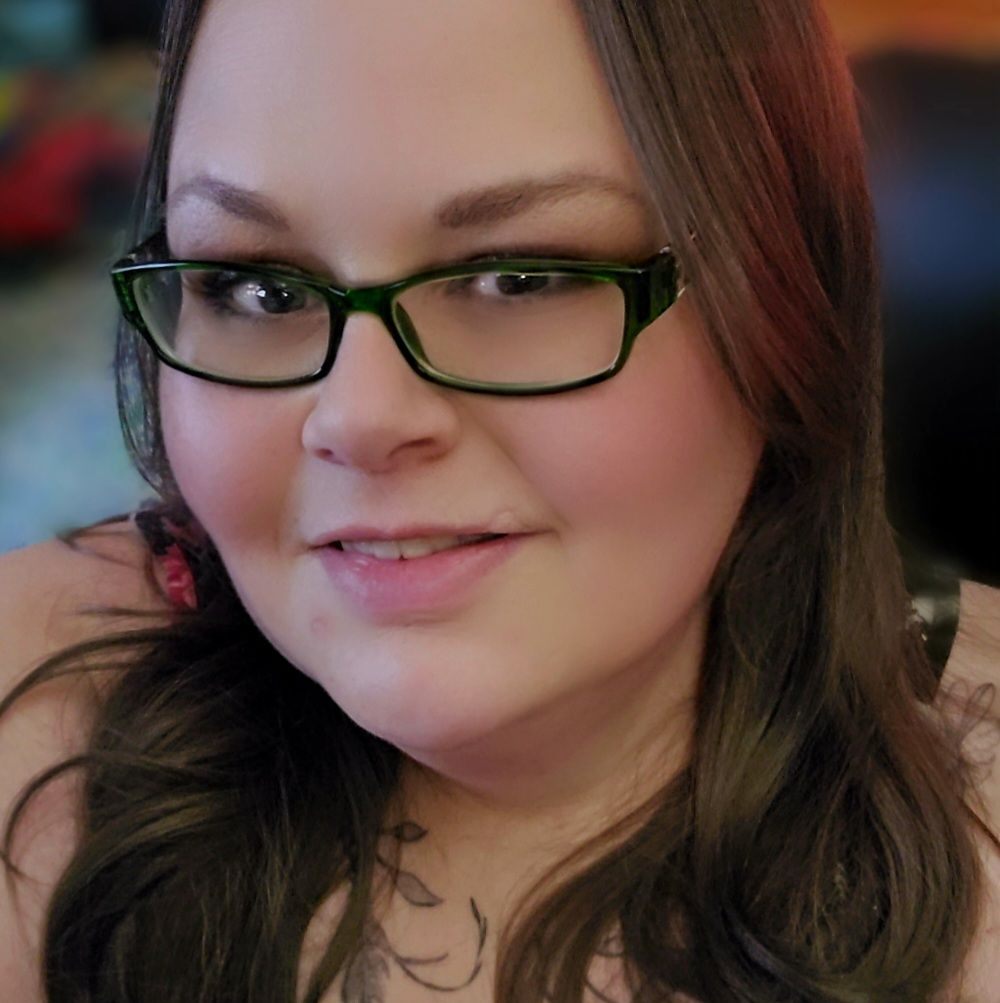
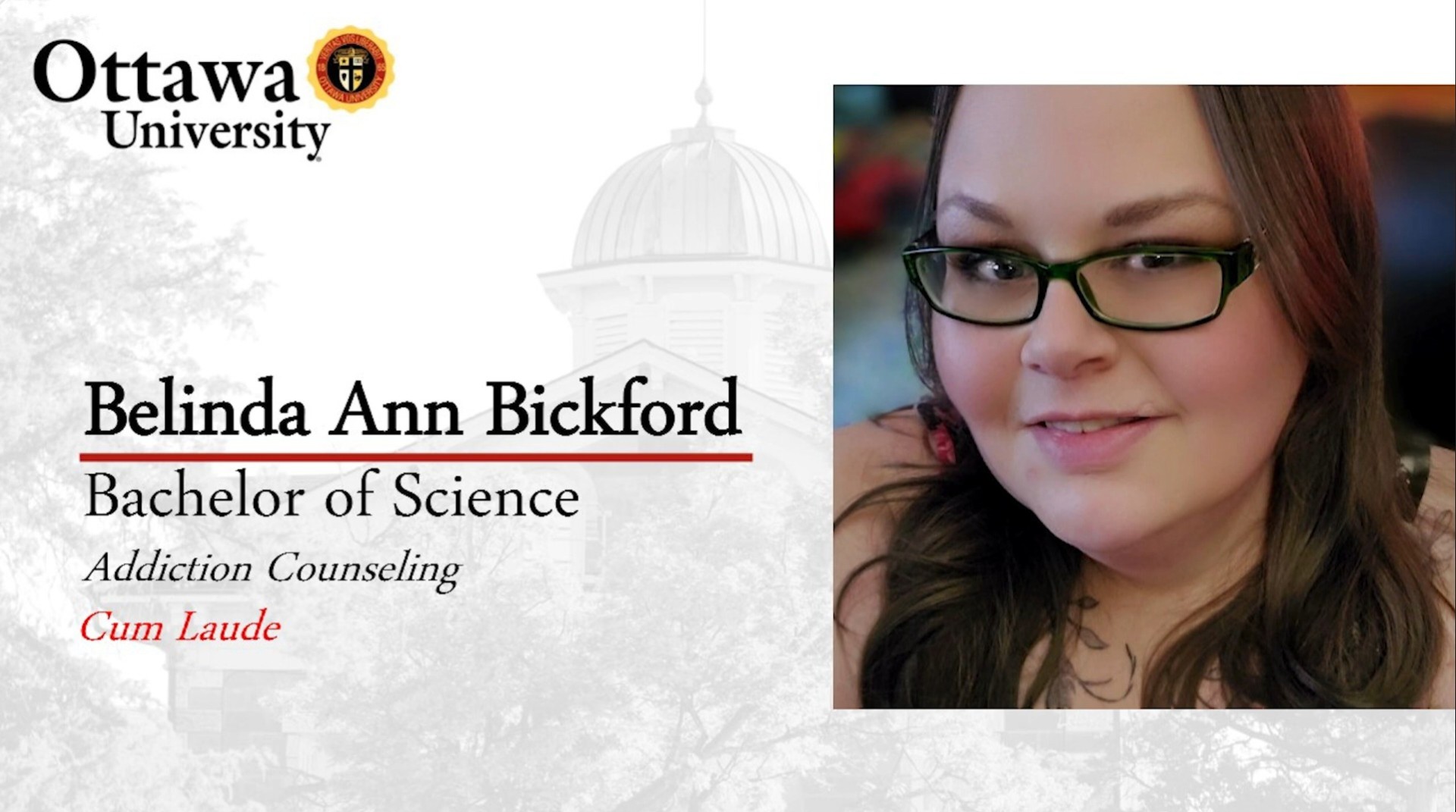
If you had to pick three qualities that are most important to develop, which three would you say matter most?
Looking back, there are three things that stand out as the most important in my journey: self-awareness, adaptability, and building real connections.
First, self-awareness. For a long time, I didn’t really know myself — I just reacted to life as it came. Everything changed once I started to honestly look at my patterns, my triggers, and my feelings without judgment. That wasn’t easy or comfortable, but it was necessary. If you’re early in your journey, start by getting curious about yourself. Keep a journal, ask yourself tough questions, and don’t shy away from what you find. Self-awareness is the foundation for everything else.
Second, adaptability. Life doesn’t go according to plan — ever. For a while, I tried to control everything, and all it did was make me miserable. Learning to roll with change, to “wing it,” and to be okay when things didn’t go my way was a game-changer. I still get curveballs, but now I see them as chances to learn or adjust. If you want to develop adaptability, practice letting go of perfection and control. Try new things, let yourself be a beginner, and remember that flexibility is a strength, not a weakness.
Third, building real connections. I grew up pretty independent — “I’ll do it myself” was my anthem. But real recovery, real change, happens in community. My support system saved me more times than I can count. I had to earn back trust and learn how to ask for help, which was hard. If you’re just starting out, reach out. Find a group, a counselor, a friend — someone who will keep you honest and remind you that you’re not alone. Relationships take work, but they’re worth it.
My advice? You don’t have to master all of these at once. Progress is progress, whether it’s a mile or a millimeter. Keep showing up, keep learning, and give yourself credit for every step forward. There’s no one right way — just your way, one day at a time.
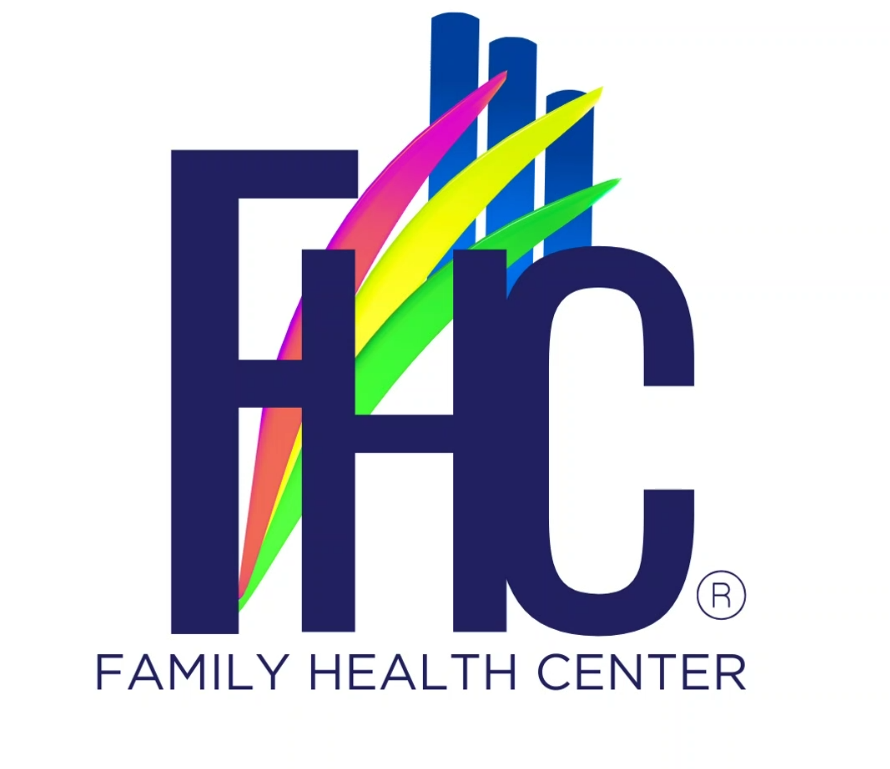
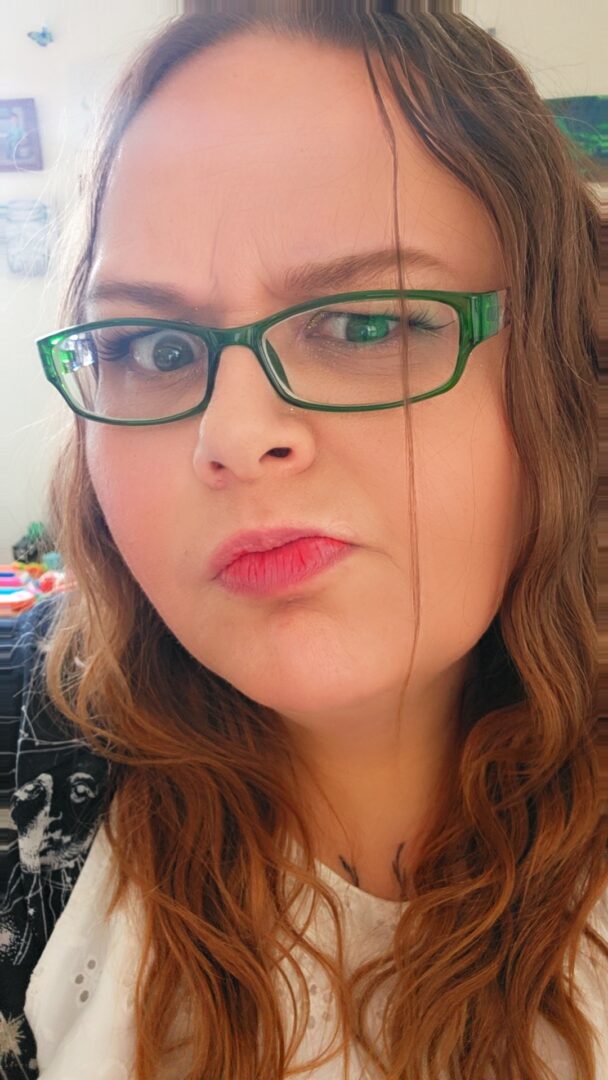
How can folks who want to work with you connect?
Absolutely, I’m always open to new partnerships and collaborations. I really believe that the best work — especially in recovery and mental health — happens when people come together and share their strengths, ideas, and perspectives.
Right now, I’d especially love to connect with:
Other counselors, coaches, and peer support specialists who want to build bridges and create more accessible resources for folks in recovery.
Writers, bloggers, and podcast guests (or hosts!) who are interested in sharing stories of resilience, recovery, or personal transformation.
Organizations serving underrepresented communities — especially Native American and LGBTQ+ populations — who want to expand recovery support in meaningful ways.
Digital health and wellness platforms, or anyone exploring new ways to deliver care and connection online.
Honestly, if you’re passionate about supporting people, breaking stigma, or just want to have a conversation about what recovery and progress look like, I’d love to hear from you.
The best way to connect is by emailing me at [insert your preferred email address here], or you can find me on LinkedIn under www.linkedin.com/in/belinda-morey-bs-sac-92435a1b7, or reach out through my blog, “Progress is Progress, Mile or a Millimeter” on Blogspot. I’m always up for a chat, brainstorming session, or seeing how we might work together to make a difference.
Contact Info:
- Website: https://progressisprogressmileormillimeter.blogspot.com/
- Instagram: @bellelarmore
- Facebook: https://www.facebook.com/belinda.larson.3
- Linkedin: https://www.linkedin.com/in/belinda-morey-bs-sac-92435a1b7
- Other: https://IGNTD.com
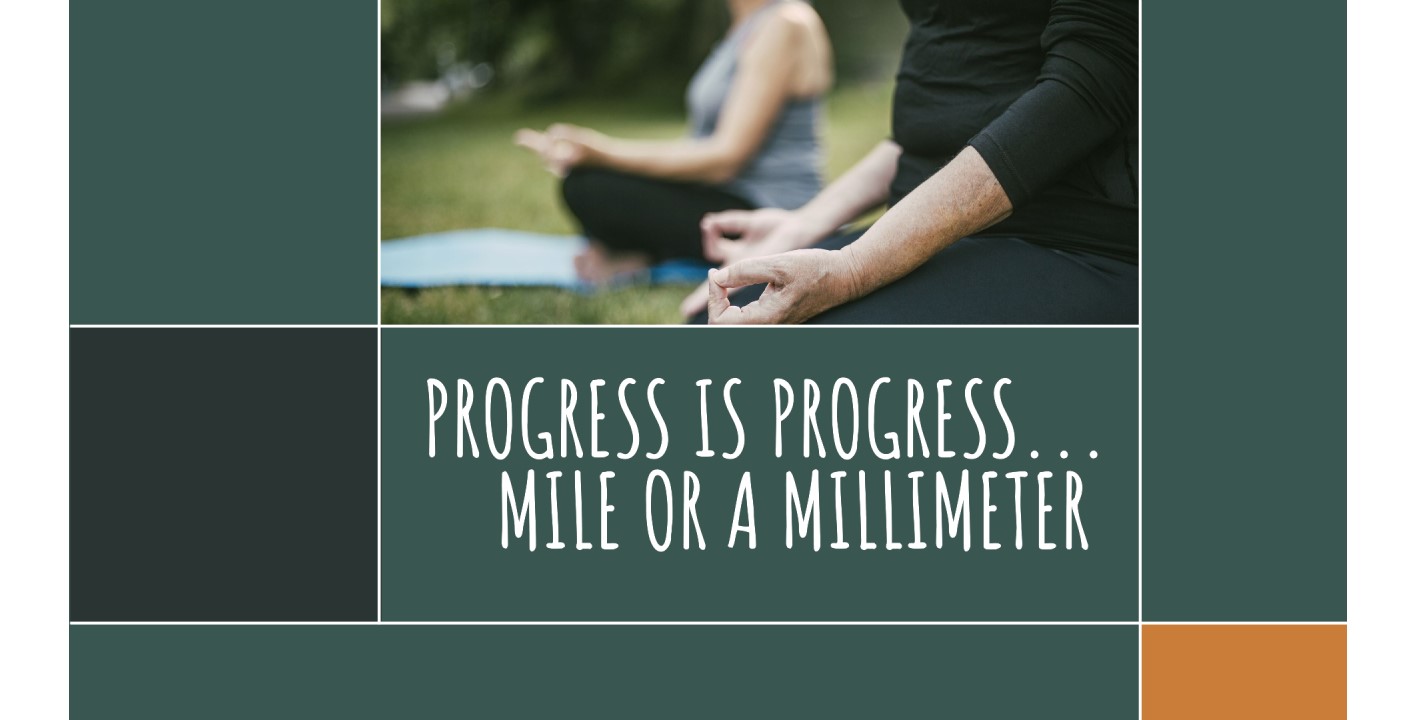
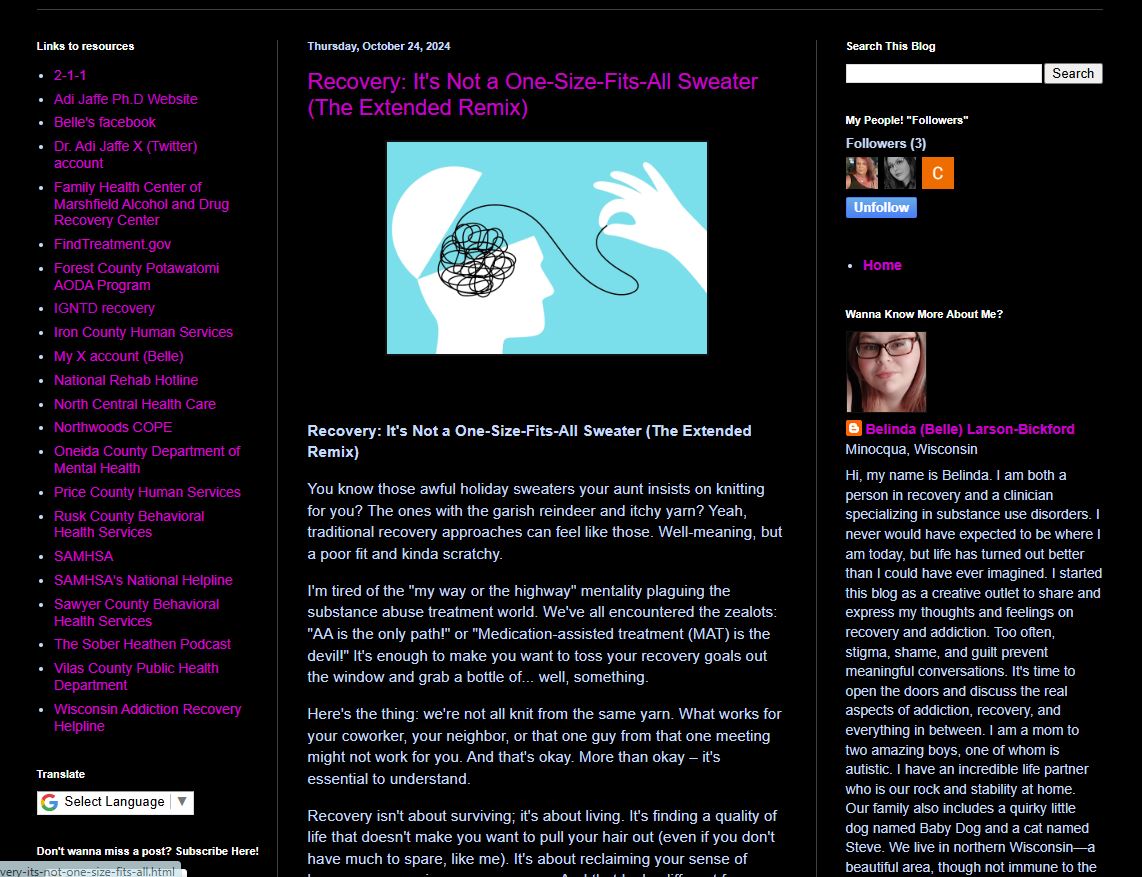
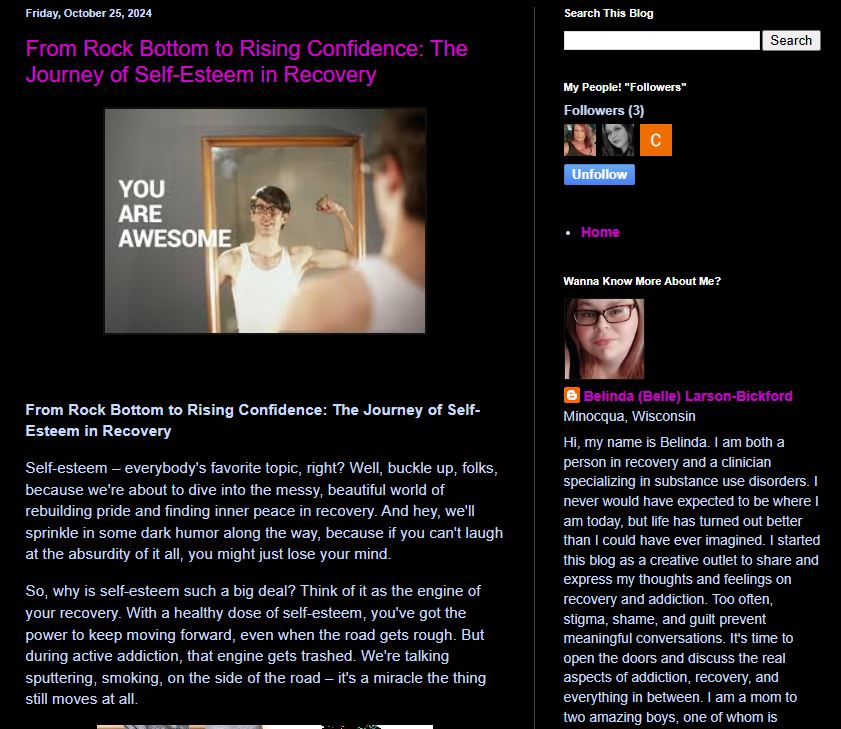
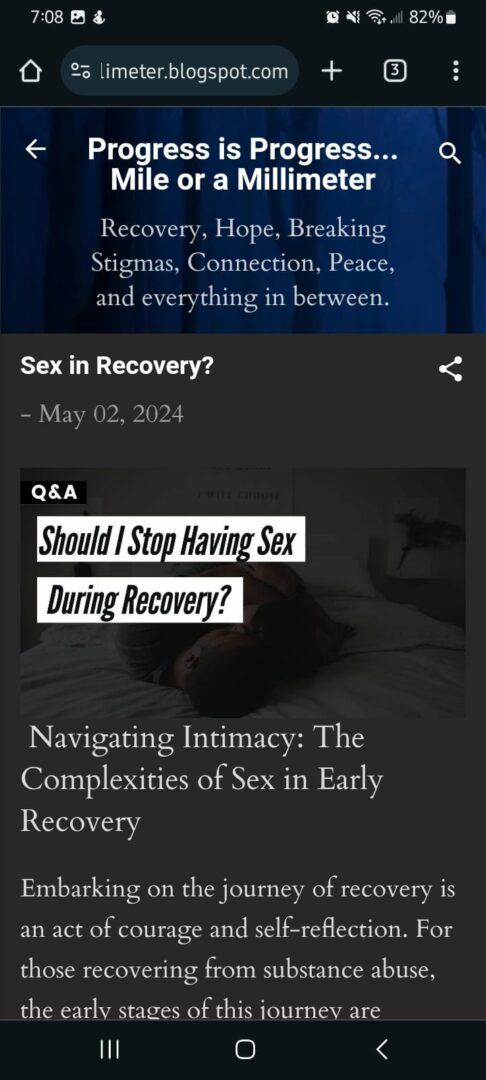

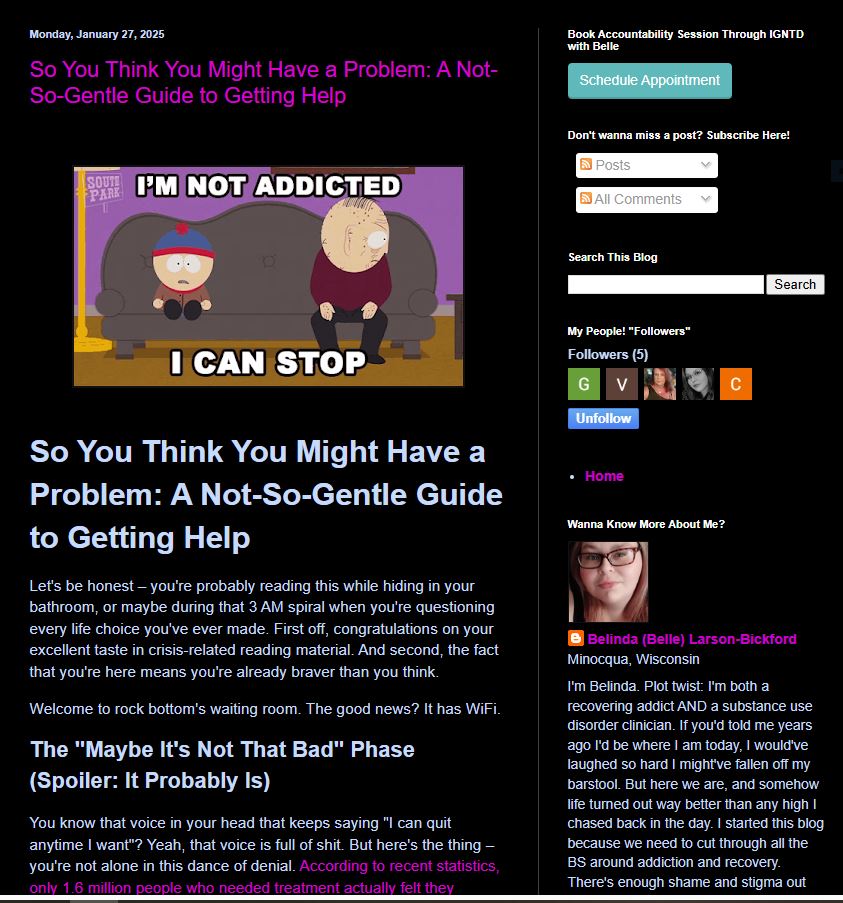
so if you or someone you know deserves recognition please let us know here.

